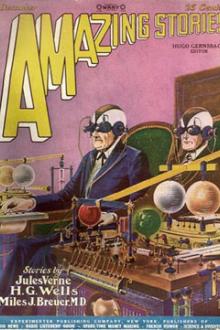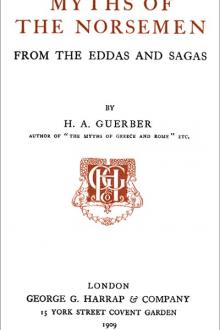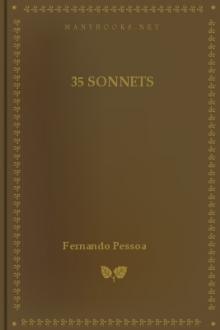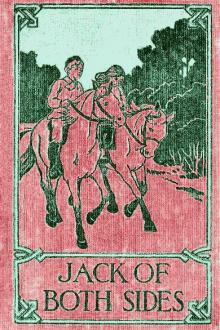Genre Fiction. Page - 255

am, is a teetotaller. Yes, m'm; and he don't smoke. Smoking, ma'am," said Jane, as one who reads the heart, "do make such a dust about. Beside the waste of money. And the smell. However, I suppose they got to do it--some of them..."
William was at first a rather shabby young man of the ready-made black coat school of costume. He had watery gray eyes, and a complexion appropriate to the brother of one in a Home for the Dying. Euphemia did not fancy him very much, even at the beginning. His eminent respectability was vouched for by an alpaca umbrella, from which he never allowed himself to be parted.
"He goes to chapel," said Jane. "His papa, ma'am----"
"His what, Jane?"
"His papa, ma'am, was Church: but Mr. Maynard is a Plymouth Brother, and William thinks it Policy, ma'am, to go there too. Mr. Maynard comes and talks to him quite friendly when they ain't busy, about using up all the ends of string, and about his soul. He takes a lot of notice, do Mr. Mayn

the sons of men; But of his brain The heavy clouds are All created."
Norse Mythology (R. B. Anderson).
To support the heavenly vault, the gods stationed the strong dwarfs, Nordri, Sudri, Austri, Westri, at its four corners, bidding them sustain it upon their shoulders, and from them the four points of the compass received their present names of North, South, East, and West. To give light to the world thus created, the gods studded the heavenly vault with sparks secured from Muspells-heim, points of light which shone steadily through the gloom like brilliant stars. The most vivid of these sparks, however, were reserved for the manufacture of the sun and moon, which were placed in beautiful golden chariots.
"And from the flaming world, where Muspel reigns, Thou sent'st and fetched'st fire, and madest lights: Sun, moon, and stars, which thou hast hung in heaven, Dividing clear the paths of night and day."
Balder Dead (Matthew Arnold).
When all these preparations had been finis

row of cafes,until I saw again a distant column crowned with a dancing figure;the freedom that danced over the fall of the Bastille.Here at least, I thought, is an origin and a standard,such as I missed in the mere muddle of industrial opportunism.The modern industrial world is not in the least democratic; but it issupposed to be democratic, or supposed to be trying to be democratic.The ninth century, the time of the Norse invasions, was not saintlyin the sense of being filled with saints; it was filled with piratesand petty tyrants, and the first feudal anarchy. But sanctitywas the only ideal those barbarians had, when they had any at all.And democracy is the only ideal the industrial millions have,when they have any at all. Sanctity was the light of the Dark Ages,or if you will the dream of the Dark Ages. And democracy is the dreamof the dark age of industrialism; if it be very much of a dream.It is this which prophets promise to achieve, and politicians pretendto achieve, and poets some

it a bit," replied Fauchery. "I certainly must make theacquaintance of your Nana before talking about her. Besides, I'vemade no promises."
Then to put an end to the discussion, he introduced his cousin, M.Hector de la Faloise, a young man who had come to finish hiseducation in Paris. The manager took the young man's measure at aglance. But Hector returned his scrutiny with deep interest. This,then, was that Bordenave, that showman of the sex who treated womenlike a convict overseer, that clever fellow who was always at fullsteam over some advertising dodge, that shouting, spitting, thigh-slapping fellow, that cynic with the soul of a policeman! Hectorwas under the impression that he ought to discover some amiableobservation for the occasion.
"Your theater--" he began in dulcet tones.
Bordenave interrupted him with a savage phrase, as becomes a man whodotes on frank situations.
"Call it my brothel!"
At this Fauchery laughed approvingly, while La Faloise stopped with

up in astonishment, and as Mrs MacNab ran down the street to meet them with lean hands similarly spread, and her fierce face in shadow, she was a little like a demon herself. The doctor and the priest made scant reply to her shrill reiterations of her daughter's story, with more disturbing details of her own, to the divided vows of vengeance against Mr Glass for murdering, and against Mr Todhunter for being murdered, or against the latter for having dared to want to marry her daughter, and for not having lived to do it. They passed through the narrow passage in the front of the house until they came to the lodger's door at the back, and there Dr Hood, with the trick of an old detective, put his shoulder sharply to the panel and burst in the door.
It opened on a scene of silent catastrophe. No one seeing it, even for a flash, could doubt that the room had been the theatre of some thrilling collision between two, or perhaps more, persons. Playing-cards lay littered across the table or fluttered about the

d the `great statesmen' who make anti-socialist speeches: unless webelieve that they are deliberate liars and imposters, who to servetheir own interests labour to mislead other people, we must concludethat they do not understand Socialism. There is no other possibleexplanation of the extraordinary things they write and say. The thingthey cry out against is not Socialism but a phantom of their ownimagining.
Another answer is that `The Philanthropists' is not a treatise oressay, but a novel. My main object was to write a readable story fullof human interest and based on the happenings of everyday life, thesubject of Socialism being treated incidentally.
This was the task I set myself. To what extent I have succeeded isfor others to say; but whatever their verdict, the work possesses atleast one merit - that of being true. I have invented nothing. Thereare no scenes or incidents in the story that I have not eitherwitnessed myself or had conclusive evidence of. As far as I dared Ilet th

That saw the Possible like a dawn grow pale
On the lost night before it, mute and vast.
It dates remoter than God's birth can reach,
That had no birth but the world's coming after.
So the world's to me as, after whispered speech,
The cause-ignored sudden echoing of laughter.
That 't has a meaning my conjecture knows,
But that 't has meaning's all its meaning shows.
XXV.
We are in Fate and Fate's and do but lack
Outness from soul to know ourselves its dwelling,
And do but compel Fate aside or back
By Fate's own immanence in the compelling.
We are too far in us from outward truth
To know how much we are not what we are,
And live but in the heat of error's youth,
Yet young enough its acting youth to ignore.
The doubleness of mind fails us, to glance
At our exterior presence amid things,
Sizing from otherness our countenance
And seeing our puppet will's act-acting strings.
An unknown language speaks in us,

g. But as soon as he says something, passes on information in an altered form, or merely expresses an attitude--he becomes a reference point. He can be marked, measured and entered on a graph. His actions can be grouped with others and the action of the group measured. Man--and his society--then becomes a systems problem that can be fed into a computer. We've cut the Gordian knot of the three-L's and are on our way towards a solution."
* * * * *
"Stop!" Costa said, raising his hand. "I was with you as far as the 3L's. What are they? A private code?"
"Not a code--abbreviation. Linear Logic Language, the pitfall of all the old researchers. All of them, historians, sociologists, political analysts, anthropologists, were licked before they started. They had to know all about A and B before they could find C. Facts to them were always hooked up in a series. Whereas in truth they had to be analyzed as a complex circuit complete with elements like positive and negative feedback, and crossover sw

e thing of which the March Hare was incapable, it was running. Jack, who had found this out, checked him from making the attempt.
"Let Toppin go, Harey, and you stay with me," he said. There was a look of satisfaction on his face. It was fine to see even the smallest boarder chevying three day-boys!
Toppin ran his fastest, and panted into the baths only a yard behind Simmons.
"Why, if here isn't the kid! What the dickens has brought you after us, young un?"
"I saw you--racing," panted Toppin, "and I wanted to see--if I couldn't--catch you. And I did!"
His thick red hair was tumbled by the wind, and the odd little tuft which had won him his nickname stuck up very prominently. The small pink face was aglow with triumph, as he stood gasping for breath, and looking up at the three older boys, his hands planted in his pockets and his feet apart.
"You're a boarder," said Armitage, with a touch of contempt.
"I should think I am! Rather!" was Toppin's proud reply.

swung them to their shoulders, and then, without a word of salutation or even a glance at the parents, they noiselessly passed out of that narrow door and disappeared in the virgin forest. They were pagan Saulteaux, by name Souwanas and Jakoos.
The Indian names by which these two children were called by the natives were "Sagastaookemou," which means the "Sunrise Gentleman," and "Minnehaha," "Laughing Waters."
To the wigwam of Souwanas, "South Wind," these children were being carried. They had no fear of these big Indians, though the boy was only six years old, and his little sister but four. They had learned to look with laughing eyes even into the fiercest and ugliest of these red faces and had made them their friends.
So even now, while being carried away among the dense trees, they merrily laughed and shouted to each other. The bright patches of sunshine on the ground, the singing birds, and the few brilliant-hued summer flowers, brought forth their exclamations of delight, while all